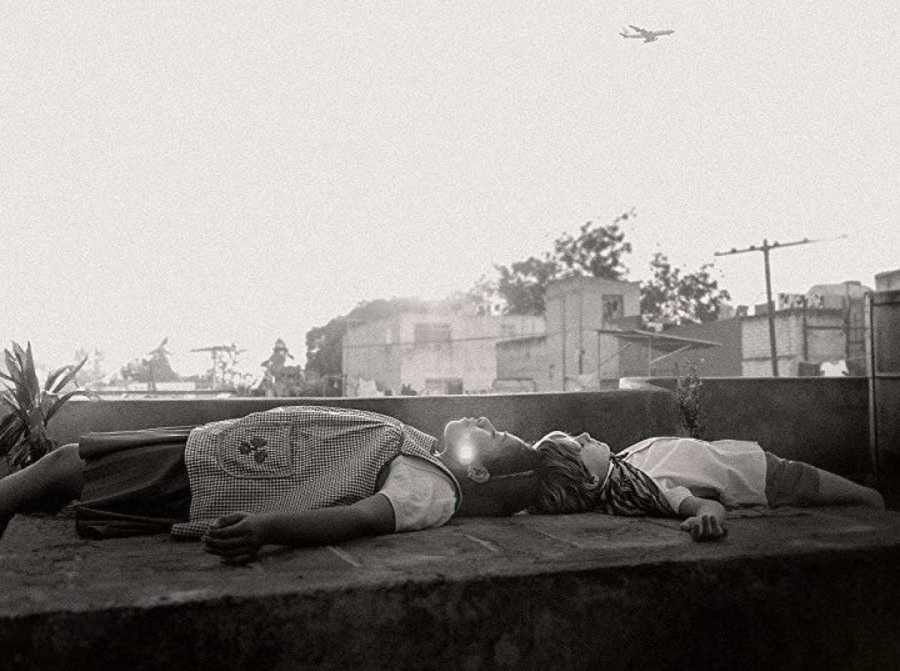‘Roma’ : A Melancholic Masterpiece
Enchanting film follows the journey of a broken family
October 12, 2021
“Existence is nothing but a shared experience of loneliness.”-Alfonso Cuarón. Allow that quote to set the precedent for what is to be expected within this film.
Directed, edited, shot and produced by Alfonso Cuarón, “Roma” displays an intimate portrait of a dysfunctional family in early 1970s Mexico City. Their story is beheld through the perspective of the household’s beloved caretaker, Cleo, who, like all other elements in the picture, is a reimagined version of Cuarón’s childhood memories. The film takes on a naturalistic, ‘slice of life’ approach, as its viewers are meant to be merely observers of a snapshot of peoples’ lives: garnering no specific plot nor character development.
The film is simultaneously simplistic and stunning, composed of long, monochromatic takes. Despite not being oversaturated with vibrance, it still manages to convey a multitude of emotions: a rare feat in modern-day cinematography. Each slow-burning shot is characterized by mundane details such as a flurry of conversation on the streets or clutter around the family’s home, further immersing us within its universe. Its genuinity makes it seem almost documentary-like.
There was something very comforting about “Roma” that could be attributed to its authenticity to Mexican culture. In a way, it serves as an homage to the Latinx experience. A particular scene that sparked nostalgia was a shot of the mother of the house, Sofia, reciting the ‘Angel De La Guarda’ prayer to her kids prior to tucking them in for bedtime. I could not help but reminisce in memories from my own childhood as I watched.
An underlying theme of the film is that adversity is oftentimes unprecedented. All one can do is subdue themselves to the moment and wait for it to pass. Cleo’s serene nature makes her the perfect vessel through which the story could be told. The ever changing, surrealistic nature of her surroundings contrast greatly with her unwavering calmness. Unlike most drama-oriented movies, “Roma” does not exhibit frenetic tension nor buildup. It simply explores the duality of hardship and highlights special slivers of clarity that can be found amidst unadulterated chaos.
“Roma” accentuates the beauty of the simple things in life that are often overlooked. Although she was the protagonist, Cleo had little dialogue. She was predominantly found nonchalantly observing her surroundings, accompanied only by herself. Cleo’s character demonstrates that comfort can be derived from loneliness and that we are all merely a speckle in the grand scheme of humanity. A scene that beautifully portrays that sensation is when she lies with her eyes closed on a rooftop, taking in her surroundings and says “I like being dead.” Subsequently, the camera pans across the city’s extensive scenery, indicating that her encounter with the environment is shared by many others.
I found “Roma” to be a gorgeous film that was vulnerable in all the right ways. Every aspect of it was carefully crafted with patience and a special attentiveness to detail. I felt as if I had been sucked into another dimension and ultimately was left begging for more screen time. If you are looking for a bittersweet, slow burner, I would undoubtedly recommend that you give it a watch.








